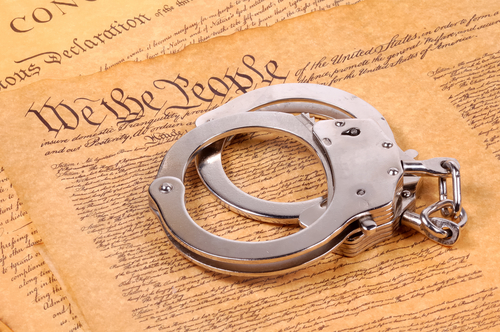 Originally published in the Champion, November, 2011
Originally published in the Champion, November, 2011
The Client Has Been Accused of What Crime?
It is essential to know what happened both from the client’s perspective and from the government’s point of view. Before the attorney starts, she should explain the potential defenses to the charged c•ime such as identification, alibi, self-defense, suppression of evidence, unintentional conduct, a mistake, and the credibility of government witnesses. The attorney wants the client filtering and aware of the defenses as he relates the facts to her.
Counsel must take her time and obtain all the facts from the client. She should exhaust every fact about every witness, the physical scene, computer data, phone calls, documents, a timeline of pertinent events, and any potential bias of the complainant or the cooperating witnesses. If the charges involve multiple counts; it is best to deal first with lead charges (i.e., conspiracy to do X). The government believes X is true because of a cooperating witness or the circumstances of the client’s arrest. The attorney should use this language throughout the interview: “the government thinks” and “the police are saying.” The government is unlikely to change that point of view, at least for now.
Who Is the Client?
Counsel needs to create an indepth profile of the client. The attorney will be funneling her client’s life history into defense theories, investigation, and if need be, mitigation for a negotiated plea agreement or sentencing. She must understand the client’s educational background, employment history, and relationship with his family. Furthermore, defense counsel must know the client’s medical (physical and psychological) history, and any drug or alcohol problems and treatment. Counsel should find out whether the client is involved with any charities, religious organizations, or the local community. In addition, counsel should take detailed notes about the client’s physical characteristics including height, weight, age, and race. She should note any identifying scars, tattoos, or unique physical attributes that may relate to an identification defense. Does the client have any prior arrests and convictions? If none, counsel should ask about character witnesses that know the client well and make sure these people have good community credentials. Good character witnesses include business leaders, the PTA president at the school the client’s children attend, and members of the clergy. If the defense attorney does not know her client, the ju•y and judge will not know him.
Arrested Development
 Was the client arrested at the time of the charged offense or was an arrest warrant issued? What items did police officers seize and how? Were other people present who may be witnesses to the arrest or search and seizure? The lawyer should explain the basics of suppression, probable cause and reasonable suspicion, and how they relate to the exclusionary rule. What did the client say at the time of arrest and did he give a statement after his arrest (Miranda issues)? If so, defense counsel needs every fact about the circumstances of any statement. Was the client handcuffed? How many police officers were present? What questions did they ask that may have elicited an incriminating response from the client?
Was the client arrested at the time of the charged offense or was an arrest warrant issued? What items did police officers seize and how? Were other people present who may be witnesses to the arrest or search and seizure? The lawyer should explain the basics of suppression, probable cause and reasonable suspicion, and how they relate to the exclusionary rule. What did the client say at the time of arrest and did he give a statement after his arrest (Miranda issues)? If so, defense counsel needs every fact about the circumstances of any statement. Was the client handcuffed? How many police officers were present? What questions did they ask that may have elicited an incriminating response from the client?
If the case clearly depends on identification, the lawyer must find out whether the client knows the complainants, and if not, whether there was a lineup or a showup at the time of the arrest. Counsel should make sure he preserves any identification defense.
Counsel should tell the client that he may need him to wait in the parking lot at the next court date while counsel requests a lineup.
Guilty or Not Guilty?
At this point, counsel should have gained the client’s trust. Typically, counsel will suggest that the client plead “not guilty” as there have not been conversations with the government. If the attorney has been meeting with people in the Attorney General’s Office, they have decided to proceed against the client and a criminal information is off the table. A grand jury has already indicted the client, so the prosecutor will be hard pressed to veto the grand jury’s decision. Defense counsel should explain tohis client the importance of retaining an investigator and, if needed, a psychologist or addiction-treatment counselor. Counsel should let the client know he has a dual defense strategy: one related to the alleged criminal conduct and the other to mitigation.
My entire article was published in the 11/11 issue of The Champion published by the National Association of Criminal Defense Lawyers.

